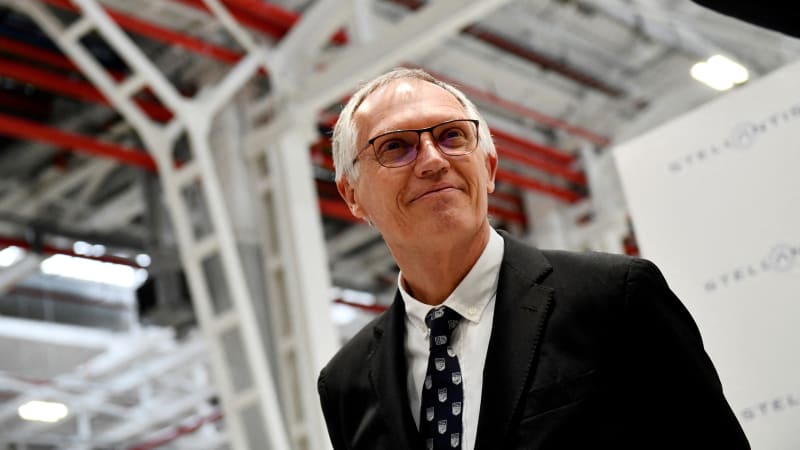Chinese car plants in Italy could mean 'unpopular decisions,' Stellantis warns

TURIN, Italy — Chinese car manufacturing in Italy could force some tough decisions for Stellantis including plant closures, the head of the Franco-Italian group, Italy’s sole major automaker, said.
The Italian government has said it is talks with Tesla and Chinese automakers, including Chery Auto, to attract one of them to manufacture in Italy and increase national automotive output after years of decline.
“If someone wants to introduce Chinese competition, they would be responsible for the unpopular decisions that might have to be taken,” Stellantis CEO Carlos Tavares said at an event in Turin.
“If we are under pressure, the only one thing we could do is to accelerate our efforts to increase productivity to be competitive,” he said.
He said Stellantis would probably lose market share and sales volumes.
“Then we might not need so many plants as we have now,” he said. “We’re ready to battle, but in a battle there are casualties.”
Tavares said speculation that Stellantis was planning to divest from Italy was “fake news.”
“We’re investing heavily in Italy,” said Tavares, who in recent months crossed swords with the Italian government over the group’s production levels in the country.
He announced the automaker would extend the production of its best-selling Fiat Panda petrol city car to 2030, in a bid to bring affordability to clients.
The internal combustion engine version of the Panda, which is produced in Pomigliano d’Arco near Naples, had been scheduled to be phased out in 2027, while a brand new, electrified version of the vehicle is expected to be launched later this year.
Tavares was speaking at an event to inaugurate Stellantis’ facility for the production of electrified dual-clutch transmissions (eDCT) for hybrid and plug-in hybrid electric vehicles, at the group’s Mirafiori complex in Turin. (Reporting by Giulio Piovaccari, editing by Gianluca Semeraro and Ros Russell)







